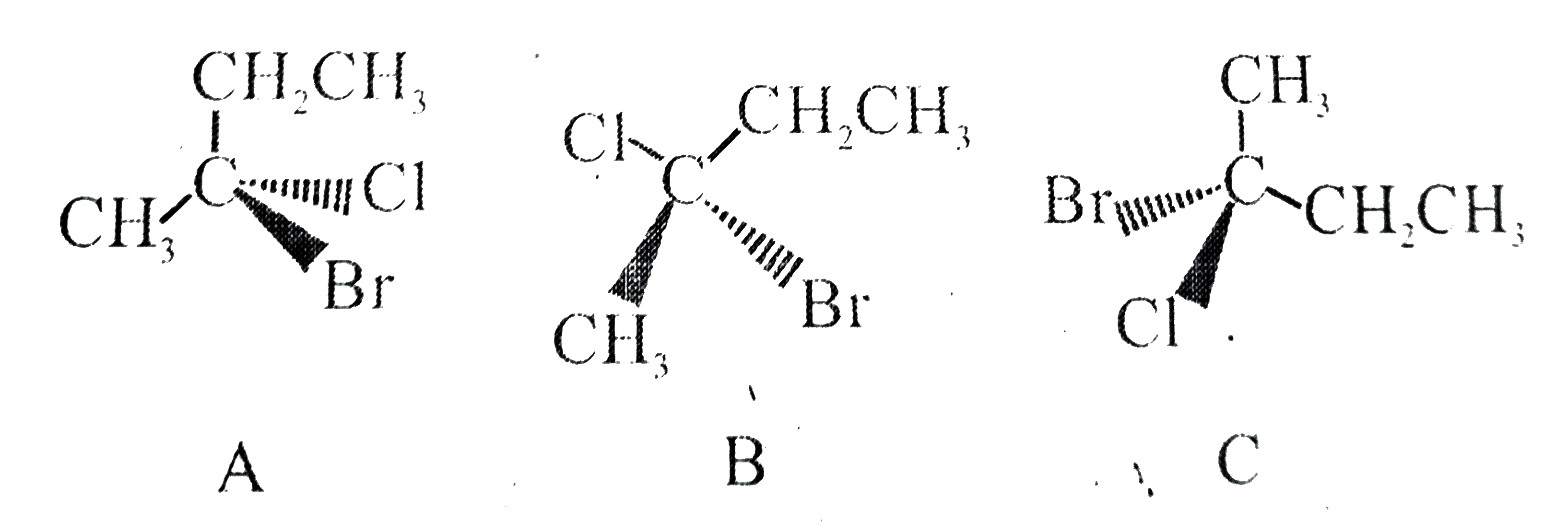Among the following statements, which is true about boron compounds ?
BF3⇒ least acidic among the boron halides
BF3⇒ does not hydrolyses
B2H6⇒ does not have banana bond
All are incorrect
The correct Answer is:A
To determine which statement about boron compounds is true, we will analyze each statement provided.
Step 1: Analyze the first statement.
- The first statement claims that BF3 is the least acidic among boron halides (BF3, BCl3, BBr3, and BI3).
- Boron halides are Lewis acids, meaning they can accept electron pairs. The acidity of these compounds generally increases with decreasing electronegativity of the halogen.
- The order of acidity is: BF3 < BCl3 < BBr3 < BI3.
- BF3 is less acidic than the others due to back bonding, where the lone pair of electrons on fluorine can be donated back to the empty p-orbital of boron. This stabilizes BF3 and reduces its acidity.
Conclusion for Step 1: The first statement is true.
Step 2: Analyze the second statement.
- The second statement claims that BF3 does not hydrolyze.
- In reality, BF3 does hydrolyze when it reacts with water, forming boric acid (B(OH)3) and hydrofluoric acid (HF).
- Therefore, this statement is incorrect.
Conclusion for Step 2: The second statement is false.
Step 3: Analyze the third statement.
- The third statement claims that B2H6 does not have banana bonds.
- B2H6 (diborane) actually has banana bonds, which are formed by the bridging hydrogen atoms. These bonds involve the overlap of orbitals from the boron atoms and the hydrogen atoms, creating a three-center two-electron bond.
- Therefore, this statement is also incorrect.
Conclusion for Step 3: The third statement is false.
Final Conclusion:
- The only true statement among the options is the first one: "BF3 is least acidic among boron halides."
Answer: The first statement is true.
---
- The first statement claims that BF3 is the least acidic among boron halides (BF3, BCl3, BBr3, and BI3).
- Boron halides are Lewis acids, meaning they can accept electron pairs. The acidity of these compounds generally increases with decreasing electronegativity of the halogen.
- The order of acidity is: BF3 < BCl3 < BBr3 < BI3.
- BF3 is less acidic than the others due to back bonding, where the lone pair of electrons on fluorine can be donated back to the empty p-orbital of boron. This stabilizes BF3 and reduces its acidity.
- The second statement claims that BF3 does not hydrolyze.
- In reality, BF3 does hydrolyze when it reacts with water, forming boric acid (B(OH)3) and hydrofluoric acid (HF).
- Therefore, this statement is incorrect.
- The third statement claims that B2H6 does not have banana bonds.
- B2H6 (diborane) actually has banana bonds, which are formed by the bridging hydrogen atoms. These bonds involve the overlap of orbitals from the boron atoms and the hydrogen atoms, creating a three-center two-electron bond.
- Therefore, this statement is also incorrect.
- The only true statement among the options is the first one: "BF3 is least acidic among boron halides."
Similar Questions
Knowledge Check
Among the following Statements, Which are true about Constructors?
(I) a new operator automatically calls them.
(II) they cannot be private
(III) they cannot be virtualAI & IIIBI & IICII & IIIDAll of the aboveWhich of the following statement is true about RNA?
AIt contains adenine paired to thymineBOne of the bases from DNA is replaced by uracilCIt contains the sugar deoxyriboseDIts nucleotides contain twice as many phosphate groups as DNA's nucleotidesAmong the following, which is a true statement ?
AA constructor can have a parameter listBThe constructor is executed automaticallyCThe constructor function can be overloadedDAll the above are true
Which of the following statement is true about aromatic compound?
View SolutionWhich of the following statement(s) is/are true about the following compounds?

View SolutionWhich of the following statements is true about compounds A-C below?

View SolutionWhich of the following statements is not true about ozone ?
View SolutionWhich of the following statements is not true for ionic compounds ?
View Solution
